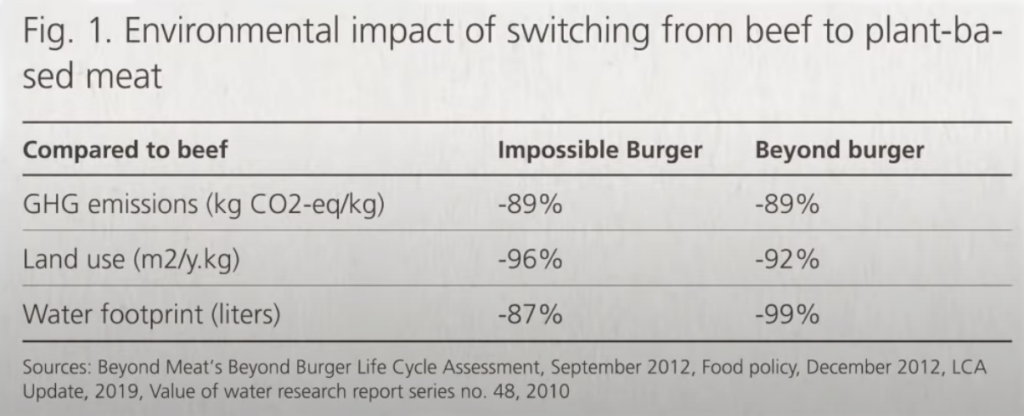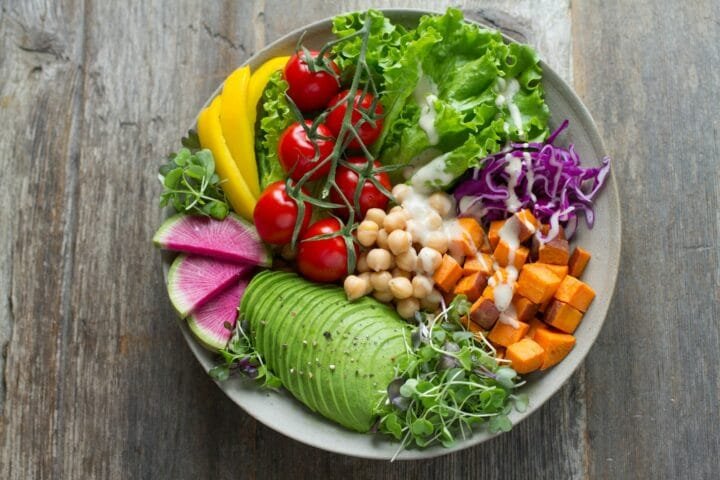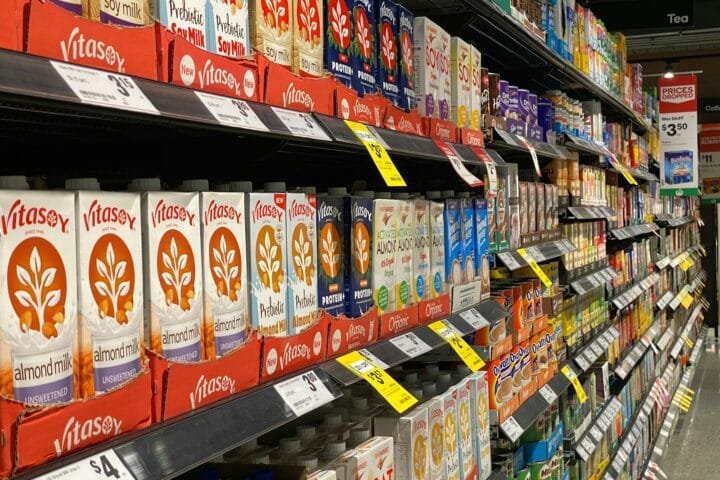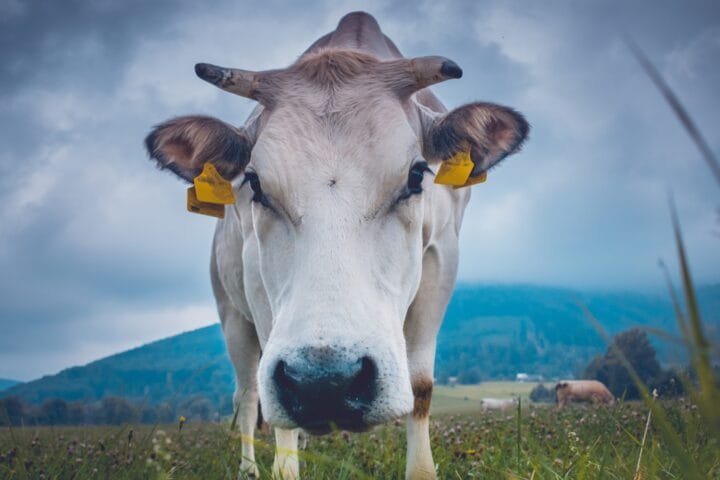From NutritionFacts.org
According to the United Nations, meat and dairy production would need to be doubled to meet the predicted demand for animal-based proteins in 2050, but the opposite is required to contain the ecological damage. As I discuss in my video The Environmental Impacts of Plant-Based Meat Substitutes, if we have any chance of sustainably meeting future food needs, we must lower our meat consumption. The largest barrier to following a plant-based diet may simply be meat appreciation.
Enter plant-based meats.
Alt-Meat and Our Planet
Before we dive into the health profile of plant-based meats, let’s look at their impact on the health of our environment. Both the Beyond Burger and the Impossible Burger have had environmental lifecycle assessments published by reputable groups, and, indeed, switching to either one of those meat-free meat alternatives results in 90 percent reductions in greenhouse gas emissions, land use, and water footprints. Similar analyses have been performed on more than 50 different plant-based meats, and they’ve all been found to be vastly more sustainable.

Is Plant-Based Meat Healthy?
We have to ask: Compared to what? Food is a zero sum game. Each time we eat, there’s an opportunity cost, a lost opportunity to put something even healthier in our mouth. For example, are eggs healthy? Yes, when compared to a breakfast sausage link, but not when compared to oatmeal.
Plant-based meat alternatives are no match for unprocessed plant foods, such as beans or lentils, and a bean burrito or lentil soup could certainly fill the same culinary niche as a lunchtime burger. But, if you are going to have some kind of burger, it’s easy to argue that the plant-based versions are healthier.
Is Beyond Meat Healthy? Is Impossible Meat Healthy?
Four of the worst components of the food supply are cholesterol, trans fats, saturated fat, and sodium. As I discuss in my video Are Beyond Meat and the Impossible Burger Healthy?, plant-based meat wins hands down against animal-based meat when it comes to cholesterol and trans fat. Trans fat intake is a serious potential risk factor for cardiovascular disease, cancer, and diabetes, and has been linked to depression symptoms, lower testosterone in men, and dementia. Higher levels of trans fat in the blood are associated with up to a 50 percent higher risk of developing dementia, including Alzheimer’s. A major source of trans fats? Animal products.
Plant-based meat is also free of hormones and antibiotics, which tips the scales even further in its favor, but it may have saturated fat from added coconut oil. Nevertheless, the largest study to date of the nutritional value of plant-based meats found that saturated fat levels of similar products only average about 2 grams per serving, which is much better than the animal-based equivalents. Sodium remains a problem throughout the sector, though, like nearly any other processed food out there.
So, plant-based meat is healthy compared with animal-based meat, but not as healthy as eating unprocessed or minimally processed plant foods directly.

Animal Protein vs. Plant Protein
Is there any advantage to eating protein from plants instead of animals? Studies have found intake of animal protein to be associated with a higher risk of mortality, particularly dying from cardiovascular disease, whereas higher consumption of plant protein is linked to lower all-cause mortality—a lower risk of dying from all causes put together. When it comes to living a longer life, plant protein sources beat out each and every animal protein source. Not just better than bacon and eggs, but better than burgers, chicken, turkey, fish, and dairy protein. What’s more, plant protein has also been linked to lower blood pressure, reduced LDL cholesterol, and improved insulin sensitivity.
Is Pea Protein Isolate Good for You?
The Beyond Burger is mostly comprised of pea protein isolate. Will we still get any benefits of the whole plant if the proteins have been isolated? Surprisingly, yes. As I discuss in my video Plant-Based Protein: Are Pea and Soy Protein Isolates Harmful?, researchers did not find a significant cholesterol-lowering difference between protein isolate products and whole food sources, “suggesting that the cholesterol-lowering effects are at least, in part, attributable to the plant protein itself rather than just the associated nutrients.”
Is Soy Protein Isolate Bad for You?
We’ve known about the beneficial effects of soy on cholesterol for 40 years or so, but what about its impact on the cancer-promoting growth hormone IGF-1? Soy protein is similar enough to animal protein that, at high enough doses, like eating two Impossible Burgers (mostly concentrated soy protein) a day, you may bump up your IGF-1 level. But the only reason we care about IGF-1 is cancer risk, and, if anything, higher soy intake is linked to decreased risk of cancer.
For instance, a recent systematic review and meta-analysis found that consumption of soy protein is associated with a lower risk in breast cancer mortality—a 12 percent reduction in breast cancer death associated with each 5-gram increase of soy protein a day. More than 10 daily grams of soy protein has been associated with cutting breast cancer mortality risk nearly in half, and more than 16 grams a day with a whopping 62 percent lower risk of dying from breast cancer.

What About Mycoprotein?
Mycoprotein is a meat alternative made from the mushroom kingdom. Quorn makes meat-free beef, chicken-free chicken, fish-free fish, and pig-free pork. As I discuss in my video The Health Effects of Mycoprotein (Quorn) Products vs. BCAAs in Meat, in terms of its environmental impact, Quorn beef’s carbon footprint is at least ten times smaller than that of beef and its chickenless chicken is at least four times better than chicken-chicken. Health-wise, mycoprotein is high in protein and fiber, low in fat, cholesterol, sodium, and sugar, and may help people control cholesterol, blood sugar, and insulin levels, and improve satiety. That isn’t a surprise, given that the fiber and the mycoprotein are fermentable by our good gut bugs, so they can also act as a prebiotic for our friendly flora.

What About the Heme in Impossible Meat?
As I discuss in my video What About the Heme in Impossible Burgers?, an issue specific to the Impossible Burger is the added heme, derived from soybean plants to enhance the product’s meaty flavor and appearance. Safety analyses have failed to find any toxicity risk specific to the soy heme churned out by yeast, and the Food and Drug Administration has agreed that it is safe—both for use as a flavor and color enhancer.
Plants for the Win
Plant-based foods, including meat-free meats, aren’t only healthier for our planet, but also for our bodies. But, as I discuss in my video Plant-Based Meat Substitutes Put to the Test, whole plant food sources of protein, such as beans, are even better. That’s why I consider plant-based meats to be more of a useful stepping stone towards a healthier diet, rather than the endgame ideal. The same amount of protein in a bean burrito would be better in nearly every way.
Read the full post at NutritionFacts.org.




